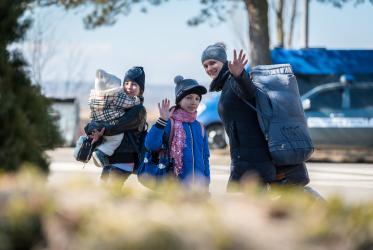There is a financial wealth that goes beyond what we imagine, believe or are even able to understand, there is an economic system that devours lives and uses them as raw material for its insatiable appetite for growth and excessive development.
There is one single planet that we all share but which is "owned" by very few people; in fact only one percent of the population. Ninety-nine percent of us who owe to that one percent the quality of life we have.
Hong Kong, a city known for its economic wealth, has been the place where after two weeks of intense work at the Ecumenical School on Governance Economics and Management I have experienced the greatest inequality I ever saw. This is saying something, since I am Latin American and deeply know the realities of my region.
Hong Kong dazzles with lights, literally shining with the economic wealth of its skyscrapers and financial centers, but these lights also uncover the doctrine of inequality and inequity of the capitalist and neoliberal system.
Here the extreme is at the center; it is not about rich and poor, it is about inequality, economic injustice and ill redistribution of wealth. So for example thousands of domestic workers cannot stay in the homes where they work on Sunday, all come almost symbolically, to the halls, streets and parks of financial centers that opens a space only on that day for them. Some sleep, some walk, others simply spend Sunday as part of market supply and demand.
The Tao Fong Shan Center and us: 20 ecumenical pilgrims of justice and peace, participants of this project, have been part of the process of demystification of the current economic and financial architecture.
There is no one single economic model, there is no such thing as market self- regulation, or perfect mathematical logic in the calculation of Gross Domestic Product. The ethics of the current economic system remains the same corrupt wealth and utility maximization without taking into account the consequences that it may cause to the political, social, environmental and cultural balance of the planet.
Multiple economic crises give evidence to what I have decribed above, and especially the last financial bubble that left millions of people without jobs and on the street, while the coffers of its architects have not stopped growing.
It is urgent that theologians, biblical scholars, economists, and anyone who wants a righteous life, come up with concrete actions to confront the prevailing financial architecture which mutilates society.
Dignity of life cannot be reduced to a "market input" or raw material, on the contrary it is the limit of all greed, avarice and inequality to which the current economic and financial system exposes us today.
A Spanish version of this blog post is available here (pdf). Translated by the author.






